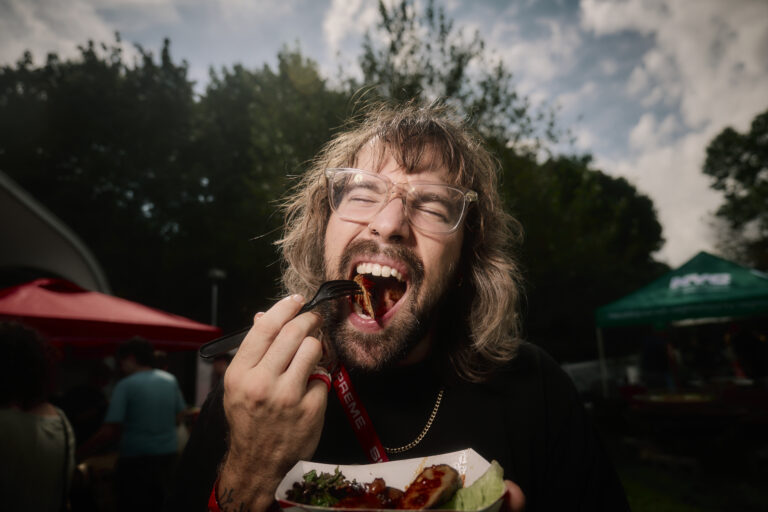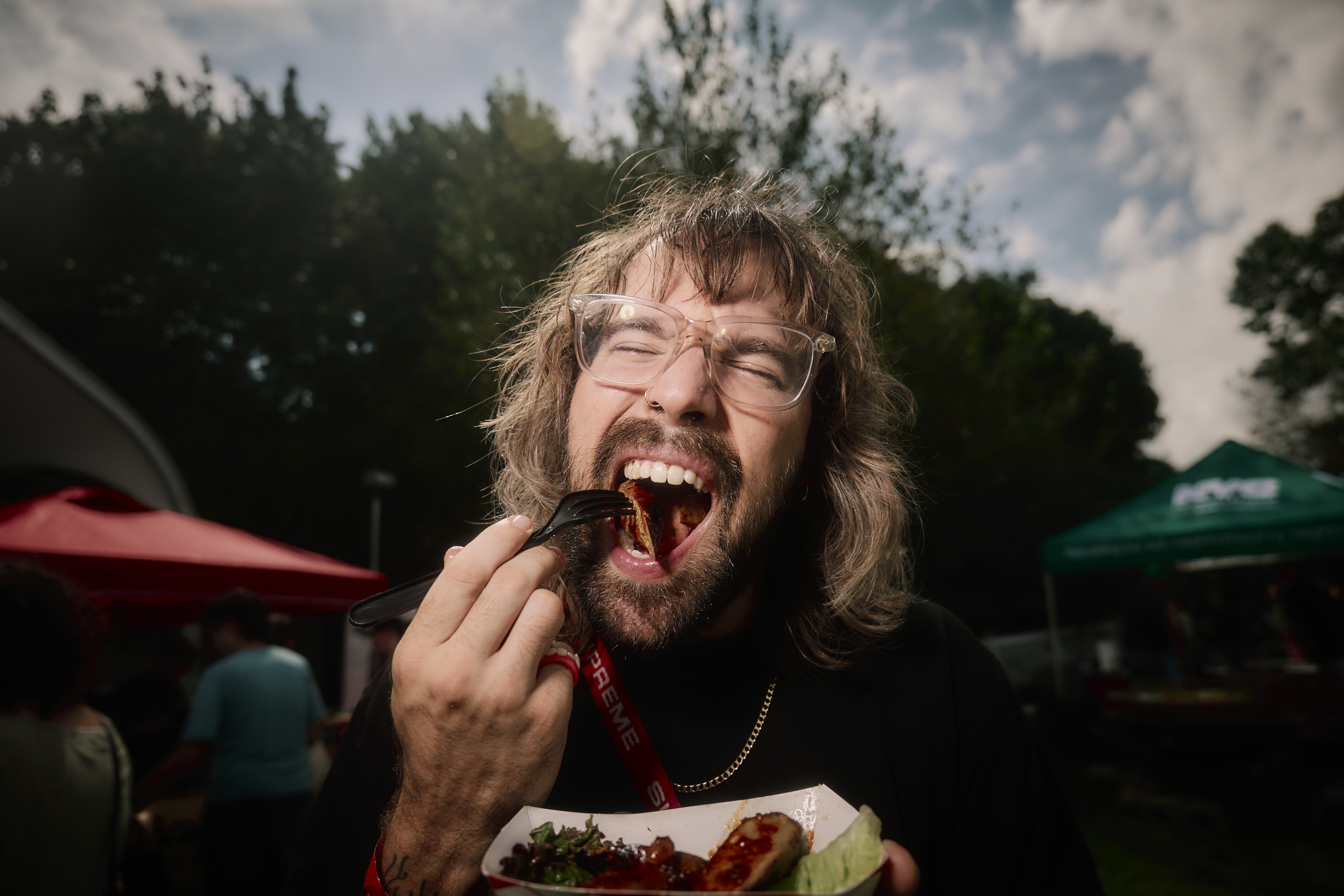If you’ve ever watched TV shows like Hell’s Kitchen, The Bear, or Boiling Point, you might be forgiven for thinking the restaurant industry is a high-pressured world where chaos reigns and tempers flare.
While that might be true in some cases, during his 20 years owning and operating New York City restaurants, Jimmy Carbone cultivated an environment that supported new and upcoming chefs and food brands, and this nurturing approach is at the heart of what he does with Food Karma Projects.
His events organization produces food events, competitions, and outdoor tasting festivals across the US, focusing on “food and the communities around it.”

“It’s my calling!” says the restaurateur and social entrepreneur, who ran Jimmy’s No. 43—a legendary East Village bar and restaurant that had a huge impact on the local community.
“Our events are primarily about grassroots community building and networking for everyone involved—the participating chefs and restaurants, brands, community partners, and attendees. They reflect our belief that strong communities are thriving communities.”
He notes how Food Karma Projects has an “impact on both micro and macro levels.”
“We’ve helped fuel people’s careers: Chef Ray Sheehan of New Jersey started out as a competitor in our hot sauce competition Sauce King NYC, won it, and then used that momentum to go on to write a book for Big Green Egg,” Jimmy recalls.

He continues, highlighting how they also benefit non-profit community groups: “We’ve also helped bring attention to organizations that are doing incredible work and deserve the spotlight, like Friends of Firefighters. They provide independent, confidential, and free mental health counseling and wellness services to active and retired FDNY firefighters and their family members and have been our community partner at many of our events since 2018.”
Jimmy has built a broad portfolio of events, many of which return annually, like CiderFeast™, which celebrates hard cider up and down the East Coast; and Brisket King® NYC and Rib King NYC™, both showing off the global flavors of brisket and ribs beyond traditional BBQ.

Similarly, Pig Island NYC™—now in its 15th year of “mighty fine swine”—originated from Jimmy’s desire to host a sustainable meat event. Recalling the inaugural festival, he says: “I bought pigs from a greenmarkets farmer and gave them to chefs to cook nose-to-tail!”
Each event in the Food Karma Projects lineup has a story like this – for example, Jimmy’s favorite-ever was the very first Brisket King® NYC in 2012, where “every chef brought their grandmother’s favorite brisket recipe.”
This April’s Brisket King® NYC saw chefs go head-to-head in the beef-laden competition in Queens as hundreds of hungry New York and New Jersey residents taste-tested some of the region’s best brisket dishes. As well as the overall winner—Leland Avellino of Connecticut-based Avellino Family Barbecue—other prizes handed out included the Let’s Taquito About It Award to Empire BBQ and Brisket Beach Award to Hindsight Barbecue.
Jimmy adds: “Participating in or winning a panel-judged event like Brisket King® NYC, Rib King NYC™, or Pig Island NYC™ is a huge accomplishment for chefs and restaurants, gaining them media coverage and visibility.”

In 2020, Jimmy launched Bowl of ‘Zole™, a pozole and tequila festival, alongside chef Dany Mena and spirits export and importer Arik Torren of Lot001 Brands. The trio wanted to launch a different kind of tasting event. Their aim was to bring the comforting Mexican stew—typically made with shredded pork or chicken, hominy and crunchy, fresh toppings—“out of the shadows and into the forefront” and share knowledge of the delicious spirits of tequila and mezcal.
“Having a line-up of both new and established events means we can build traditions while simultaneously keeping things fresh,” he explains. “A big part of that balance is giving chefs and restaurants the freedom to run with whatever inspires them at the time, whether it’s something trendy or a brand-new idea they want to test out.”
When it comes to food events, Jimmy proves that the secret ingredient to success is not just what is on the plate but also the community that shares it.
“Being able to facilitate strong ties between people is something special—especially within the food industry. Collaboration and peer support are vital,” he adds.
His secret to pulling off so many successful culinary events? Meticulous planning and building a trusted team.
“Successfully managing large events involves paying attention to a lot of moving parts,” he says. “It’s easy to get caught up in great ideas before you’ve stepped back to take a look at how you can execute them well or not account for a small detail that makes a big difference.”






